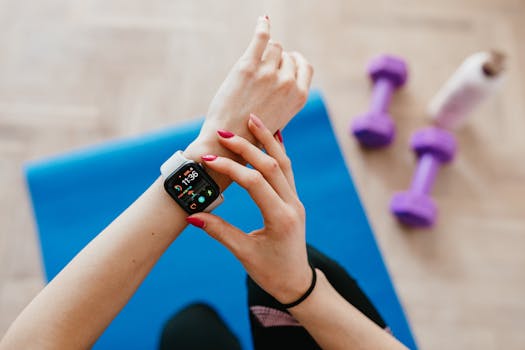Unplugging for Wellness: The Benefits of a Digital Detox
In a world where our devices buzz, blink, and beg for our attention nearly every second, stepping away from screens can seem nearly impossible. Yet recent studies underscore the profound impact digital detoxes can have on our well-being. A report published in the Journal of Environmental Psychology highlights that participants who undertook a digital detox noted significant improvements in their mood and anxiety levels.

So, what exactly is a digital detox? It involves consciously refraining from electronic devices such as smartphones, tablets, and computers for a specific period, allowing individuals to unwind and focus on social interactions without interruptions from technology.
The Science Behind Digital Detox
A dive into the psychological benefits reveals why disconnecting can be so rejuvenating. The constant flow of notifications and the temptation to check our devices divides our attention – often leading to diminished productivity and chronic stress.
Dr. Sandra Bond Chapman, chief director at the Center for Brain Health at The University of Texas, suggests that "By giving the brain a break from digital demands, you allow it to reset, making you more efficient and resilient." This idea leads us to contemplate not just a temporary break but perhaps occasional periods where we unplug to maintain mental clarity.
Physical Health Benefits
Apart from mental and cognitive improvements, turning off tech gadgets also benefits physical health. Coined affectionately by experts as "tech neck," prolonged device usage can lead to posture issues and muscle strain in the upper back, neck, and shoulders. Harvard Health Publishing recommends regular intervals of digital detox as one way to mitigate these health risks by encouraging people to move more often and adjust their posture periodically.
Creating Your Digital Detox Plan
Starting a digital detox doesn't require drastic measures; it can be as simple as allocating phone-free periods each day or engaging in tech-free weekends. Here’s a straightforward framework for anyone wanting to embrace disconnection:
- Set clear guidelines: Determine what devices or platforms you will refrain from using during your detox. Be specific about timeframes: two hours daily, weekends, or even an entire week.
- Inform your network: Let friends, family, and colleagues know when you're unplugging so they can adjust their expectations regarding your availability.
- Create tech-free zones: Establish areas in your home where technology is not allowed, such as the dining room or bedroom.
- Engage in offline activities: Replace screen time with hobbies like reading, cooking, or outdoor activities like hiking or cycling.
The following table provides an example routine that one might follow while undertaking a weekend digital detox:
| Time of Day | Activity |
|---|---|
| Morning | Meditation or a morning walk without a phone. |
| Noon | Read a print book or engage in creative hobbies like painting or writing. |
| Evening | Social interaction - dinner with family or coffee with friends (no phones allowed). |
| Nighttime | A nightcap or herbal tea followed by journaling about the day's experiences offline. |
Real-Life Success Stories of Digital Detoxes
Many attribute enhanced focus and deeper personal connections to regular digital detox practices. According to Gia Graham, an illustrator who practiced a four-week digital detox: "It was rejuvenating; I finished two books in the first week which hadn't happened in years!" Her story echoes many others who find rediscovered passion for neglected hobbies or improved relationships with loved ones when they step away from the digital world temporarily.
Your Next Steps
Considering integrating a digital detox into your lifestyle? Reflect on how much time you spend interfacing with devices and identify moments where you could go without them. Start small,maybe designate the first hour after waking as tech-free,or commit to an entire weekend off-the-grid if your circumstances allow it. Monitor how these changes affect your quality of life and mental wellbeing over several weeks or months.
Digital detoxes are not just about removing negativity but about creating room for positive habits that foster physical health, psychological well-being, and mindfulness in our everyday lives. By willingly unplugging occasionally, we give ourselves a chance to reset mentally and physically,a subtle yet powerful form of self-care in this digitally dominated age.
References:
- "Journal of Environmental Psychology - The Psychological Benefits of Participating in Real-life Community Settings". Academic Press.
- "Harvard Health Publishing - Managing 'tech neck' symptoms" Harvard University Medical School.
- Sandra Bond Chapman, Ph.D., "Why We Need Brain Breaks From Technology," Insights from the Center for Brain Health at The University of Texas.